
Summary
Ana Trišić-Babić, Milorad Dodik’s long-time advisor, was appointed interim president of the Republika Srpska on October 18.
The Republika Srpska National Assembly repealed unconstitutional laws.
Washington has eased sanctions on some of Dodik’s close associates.
Analysts are wondering whether this is a political transition agreed upon by Dodik and international actors, or whether it is a bluff on his part.
Ana Trišić-Babić and Željka Cvijanović visited Washington in October this year, where they held talks with “important people in the administration,” as was later announced, and the anti-Dayton laws were withdrawn in the Republika Srpska a few days later.
Coincidence or a political transition agreed upon by Milorad Dodik and international actors?
This question arose after the Assembly of the Republika Srpska repealed the unconstitutional laws on Saturday, and Washington eased sanctions on some of Dodik’s close associates the day before.
Analysts point to the possibility that Dodik is “changing tactics, waiting for a new opportune moment and room for maneuver to return.”
“Dodik’s strategy is only part of the story. The other, more important part is the behavior of the US, the EU, and other political parties in Bosnia and Herzegovina. I don’t want to make predictions, but as long as they continue to exert pressure, I think this could spell the end of Dodik’s political career, and it is entirely possible that this is happening right now,” Brussels-based analyst Toby Vogel from the Democracy Policy Council (DPC) told Radio Free Europe (RFE).
Ana Trišić-Babić, a long-time advisor to Milorad Dodik, was appointed interim president of the Republika Srpska on October 18.
On the same day, after Dodik was convicted of disregarding the decisions of the international high representative, the RS National Assembly repealed the laws it had passed in the spring to prevent the work of state judicial and police authorities in the territory of this entity.
Dodik, who was stripped of his mandate as president of the RS, has been a dominant political figure in Bosnia and Herzegovina for the past 20 years and has dictated the country’s political course through his Alliance of Independent Social Democrats (SNSD).
His policies have often been described as a threat to stability and peace in Bosnia and Herzegovina, and the US Treasury Department has imposed sanctions on him, his closest associates, including Cvijanović, family members, and companies that, according to the US, “served his personal enrichment.” .
A carefully managed transition
Toby Vogel, a Brussels-based analyst at the Democracy Policy Council (DPC), says that current events in RS “are most likely not spontaneous, but the result of a closed agreement on a ‘soft transfer of power’,” but there is no evidence to support this.
In his opinion, Milorad Dodik is facing serious and multifaceted pressure from the international community, as well as internal pressure from his own political environment. Vogel says that Dodik “always gives in when he is under great pressure and radicalises the situation when he thinks there is room for such a manoeuvre”.
“I think the Americans and Europeans will continue to pressure the Republika Srpska, the SNSD, whoever ultimately succeeds Dodik after the early elections for president of the Republika Srpska, to stay on this path and not change it,” Vogel told RFE/RL.
Such a scenario would represent an acceptable compromise for international actors, as Dodik, according to Vogel, is more afraid of future criminal prosecutions and the possible loss of control over his personal assets.
“I think that motivates him much more than high politics or who will be the interim president of the RS,” Vogel said. Aleksandar Popov of the Center for Regionalism in Novi Sad believes that Dodik was forced to resign under strong international pressure.
He told RFE/RL that Dodik’s move could be interpreted as a response to “specific and serious threats from Washington.” He recalled US Secretary of State Marco Rubio’s warning to “partners in the region to join us in opposing this dangerous and destabilizing behavior.”
“This means that something happened, that some kind of sharp threat came from Washington and that it was finally taken seriously in Banja Luka, especially by Dodik and his associates, and that an agreement was reached: if you do what we ask of you, and this has been done, we will be lenient with you in this case,” Popov told RFE/RL.
According to Davor Gjenera, a political analyst from Zagreb, the visit of Dodik’s closest associate, Željka Cvijanović, accompanied by Dodik’s advisor Trišić-Babić, to Washington was a “key event” and that the meetings with US officials were “a carefully orchestrated model of a peaceful transition after Dodik.”
After the withdrawal of the bill, Cvijanović said in English on Radio X that the RS had shown itself to be a “credible partner.”
Gjenero draws a parallel between Cvijanović and Biljana Plavšić, who, according to Gjenero, “played a similar role in the post-Karadžić period” in the late 1990s.
Although Plavšić was later convicted of war crimes by the Hague Tribunal, her temporary role as a bridge to the West was, in Gjener’s opinion, necessary for stabilizing the situation, and this scenario is repeating itself.
Gjener calls this a pragmatic American tactic that allows international actors to communicate with local actors and carry out a transfer of power without obvious intervention.
“This does not mean that there has been any change in the position of Milorad Dodik and the decision that he and, in the long term, his inner circle must leave politics. The elections for the president of the entity will show whether this space will be exploited or whether someone who is even more of Vučić’s player than Dodik was will take his place,” Gjenerova told RFE/RL.
According to Gjener, Dodik faces only the choice between “a quiet withdrawal from public life while protecting his acquired wealth” or “a conflict that could put him in a position similar to that of Karadžić.”
“There is no third option. He does not belong to the tradition of war criminals in politics in the entity. War profiteers are more rational than war criminals and are primarily focused on preserving their economic power,” Gjenerova told RSE.
Is Dodik’s return possible?
Professor Šaćir Filandra from the Faculty of Political Sciences in Sarajevo told RFE/RL that stories about Milorad Dodik’s withdrawal are just speculation for now and that Dodik still has a key influence on political processes and personnel decisions in the RS.
Filandra believes that “there has probably been some coordination with international actors” to “prevent the opening of a new legal-political or security hotspot in Bosnia and Herzegovina and the region.”
“I don’t think there will be a major political coup. I think Dodik has so far proven that he has the political skills to maintain his position, from the material to every other aspect, and at this point no major upheavals are to be expected,” Filandra told RFE/RL.
Incidentally, the Bosnia and Herzegovina prosecutor’s office is investigating Dodik, former RS Prime Minister Radovan Višković, and RS National Assembly President Nenad Stevandić on suspicion of “attacking the constitutional order.”
The prosecutor’s office is also investigating a case related to Dodik’s purchase of a villa in the elite Belgrade neighborhood of Dedinje. He was convicted by a final judgment for disregarding the decisions of High Representative Christian Schmidt and was banned from holding elected or appointed office for six years.
The Central Election Commission of Bosnia and Herzegovina then revoked his mandate as President of the RS and called early elections. He is currently only the president of the Alliance of Independent Social Democrats, the ruling party in the RS and at the level of Bosnia and Herzegovina./RSE/

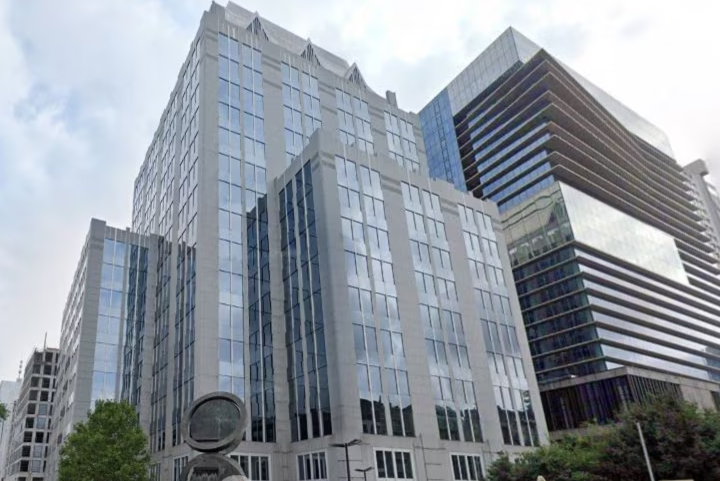 Brussels Moves To Leverage $204 Billion In Russian Assets For Ukraine Loan
Brussels Moves To Leverage $204 Billion In Russian Assets For Ukraine Loan 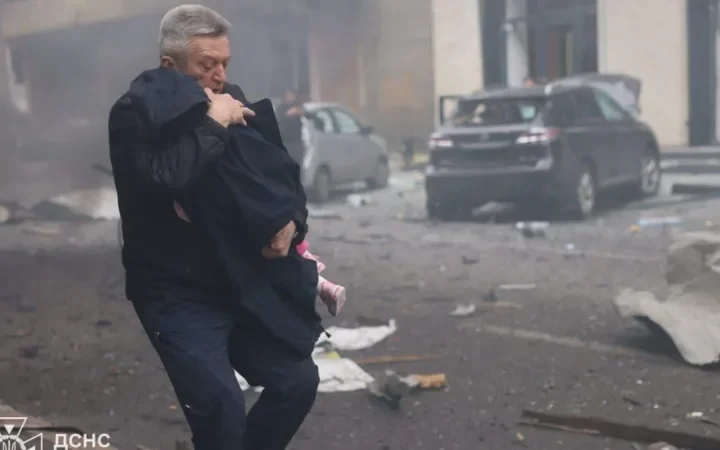 Children among victims in Russian strikes, hours after Trump-Putin talks shelved
Children among victims in Russian strikes, hours after Trump-Putin talks shelved 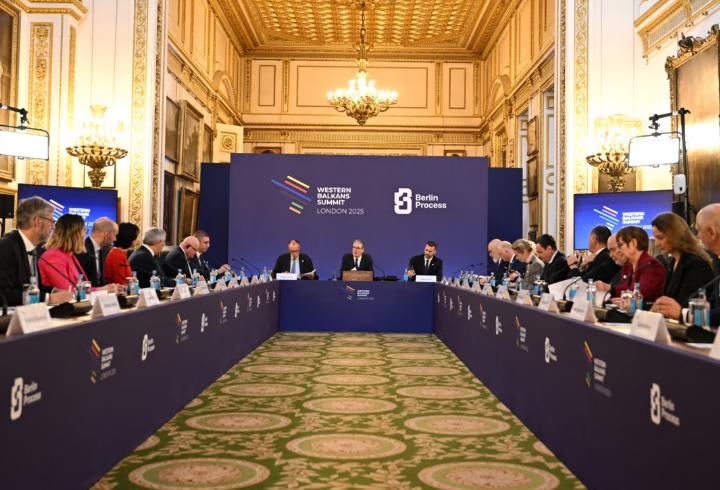 The Balkans are testing Europe’s security, says British Prime Minister at Berlin Process summit
The Balkans are testing Europe’s security, says British Prime Minister at Berlin Process summit 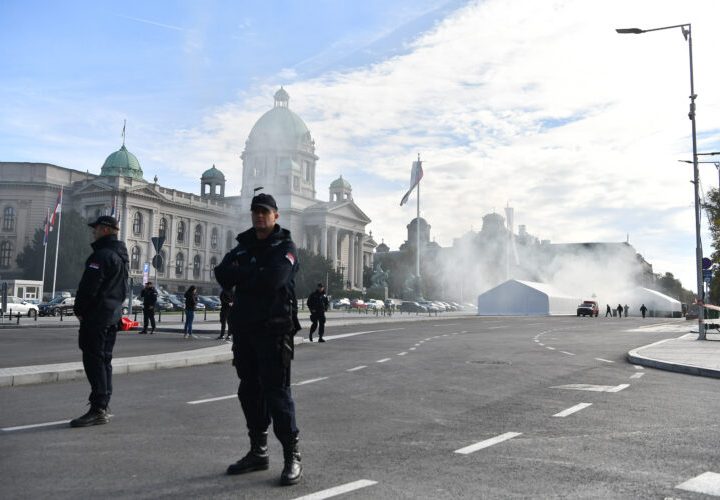 Fire and gunshots in Serbia: Vučić declares the attack in “Ćacilend” a “terrorist attack” without evidence
Fire and gunshots in Serbia: Vučić declares the attack in “Ćacilend” a “terrorist attack” without evidence 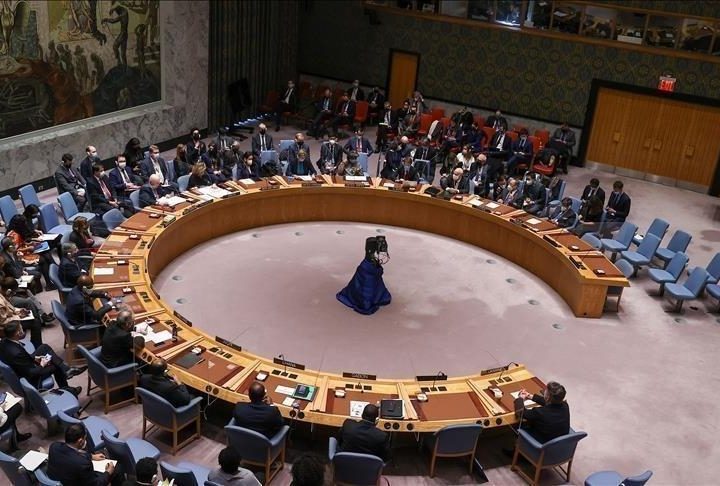 Serbia repeats propaganda at the UN, Kosovo denies it: Serbian rhetoric recalls the Milosevic era
Serbia repeats propaganda at the UN, Kosovo denies it: Serbian rhetoric recalls the Milosevic era 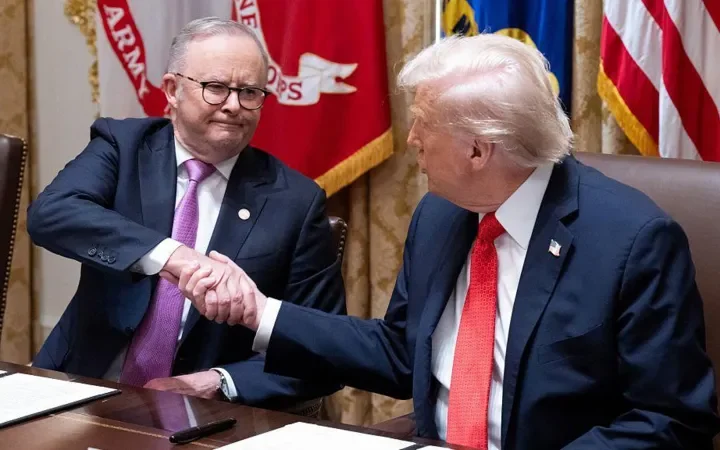 US and Australia sign rare earths deal to counter China’s dominance
US and Australia sign rare earths deal to counter China’s dominance